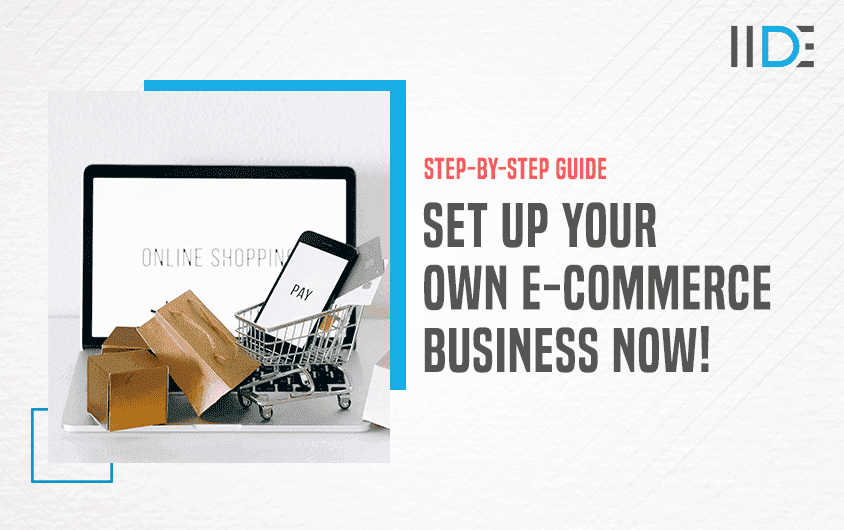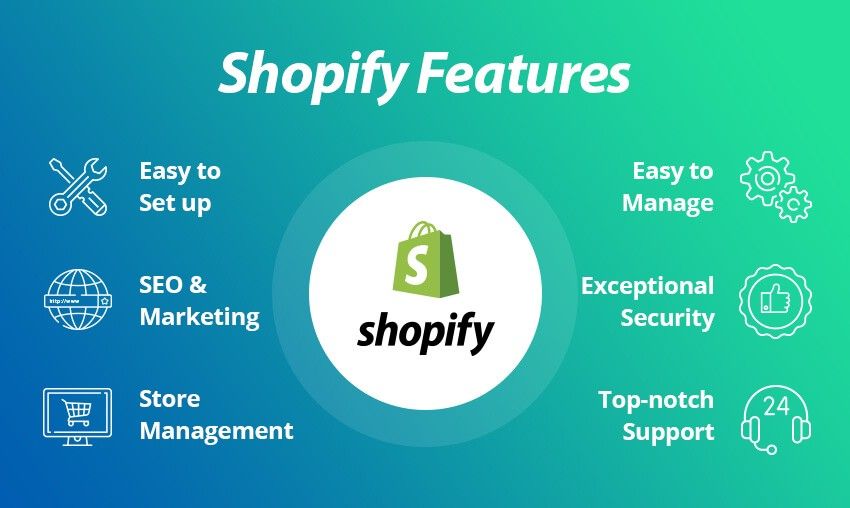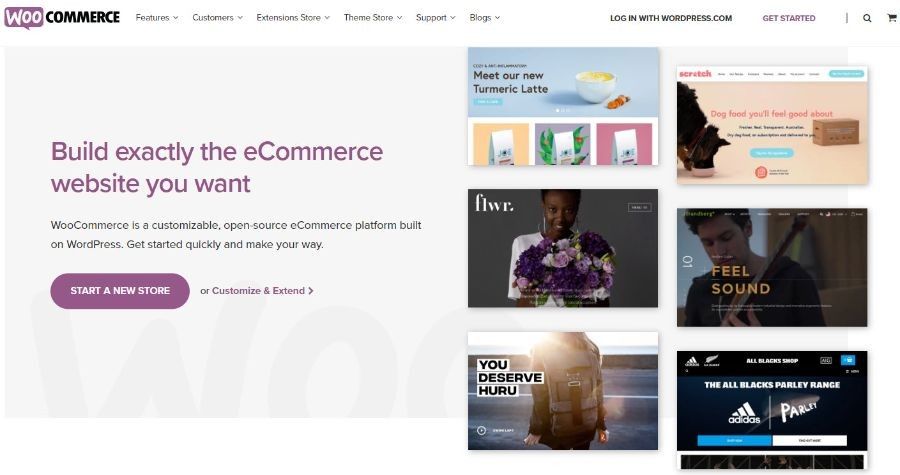
By Daksh Juneja
Updated on Dec 11, 2025
Share on:
Why go outside in the scorching sun to shop when everything you want can be delivered straight to your home? This particular school of thought has led millions of consumers to shift to e-commerce for their shopping needs.
While e-commerce offers comfort to the consumer, it offers lots of challenges to businesses. If you are a traditional business trying to create an e-commerce space or a budding entrepreneur looking to sell online, here’s a guide on how to start an e-commerce business in simple steps.
Growth of E-commerce After the Pandemic
Did you know? The pandemic has transformed how business is done all over the world.
The rise of the internet and accessibility to smartphones has seen a drastic change. With the Digital India program being introduced, there has been a significant rise in internet users to 785 million users. The E-commerce industry is expected to grow to $188 billion in 2025 from $50 billion in 2020.
The micro, small, and medium enterprises in India have impacted the growth of the e-commerce industry. It has seen an upward growth trajectory and is expected to grow leaps and bounds by 2025, possibly becoming the second-largest e-commerce market in the world.
Digital ads, digital payments, and measurable consumer engagement support even more growth in the e-commerce sector. This will lead to an increase in job opportunities and small businesses.
Quick Tip: If you require personal mentoring and would like to set up side-by-side with mentors, consider training with IIDE with our Online Ecommerce Management Course.
Let’s get on to the quick and practical guide on how to start an e-commerce business now.
How to start an E-commerce Business from Scratch in Just 8 Steps
Setting up any kind of business is not easy. From planning to launching, there are many steps on the way to successfully launching a business. With the internet, starting your business from scratch is easier than ever! Let’s have a look at how to start an e-commerce business from scratch that sustains for a longer period of time.
1. Research – Find your niche in the e-commerce space
The first step is research. What kind of product would you like to sell? Would you like to sell a service? Go on different platforms and see how others are doing it.
Is the product saturated in space? What kind of legal terms and services would you offer? Where would you source your products from? Ask yourself these questions before starting out. Without a niche or competitive advantage, you cannot move forward with the other steps of how to start an e-commerce brand.
2. Choose a Product
Choose your product. It needs to add value, and at the same time, stand out from the crowd. Identify what kind of business model you wish to go for. A single-vendor or multi-vendor store is your option.
- Single-vendor model – Only a single vendor is registered and can sell the products to multiple customers. Inventory is easier to control here.
- Multi-vendor model – Multiple vendors can sell their products to multiple customers by registering with your e-commerce business.
3. Branding
While deciding on the e-commerce business name, it is important to keep in mind a unique name that will help you in branding and is easy to word of mouth. It needs to be –
- Short, not too long
- Easy to remember
- Unique but not difficult to pronounce
Design a logo to go with your merchandise and on your card. It will build brand identity.
4. Market Research
Market research is extremely important. Once you’ve identified a potential list of products or services, dive deep into market research. What are the competitors doing that is working for them? How other businesses work will give you an idea of how to go about setting up.
You can also research your competitors’ brand strategy and foundation story so that you learn from their successes and failures.
5. Obtain an e-commerce business license
Now comes the most important part of how to start an e-commerce business in India – obtaining the license. Here’s how you can get the license required for e-commerce business in India –
- Apply for the DIN (Director’s Identification Number) on the DIN app from the website of the Ministry of Corporate Affairs.
- Keep your PAN card and digital signature ready.
- Apply to the Registrar of Companies (ROC) to check for the availability of your brand name. You can check it on the website of the Ministry of Corporate Affairs as well.
- After getting confirmation on the name, you need to apply for GST certification, Professional Tax (PT), and Shops and Establishment License.
- Apply for the Certification of Company Incorporation, where your company will be registered under the Company’s Act.
6. Choose your platforms
Now comes the actual setting up bit. Choose the right platforms for your business. Choose from Amazon, Flipkart, etc. there are a number of platforms available today and it’s up to you to find out with research which platform would work best for your product.
Many people also set up their own e-commerce websites from scratch.
7. Set Up and List Your Products
Once you’ve identified which platforms work best, start uploading content, and images and maintain an inventory. List them and start selling. Listing products along with correct information is the most important part of how to start an e-commerce business.
8. Market your Business
Once your e-commerce business is set up, start marketing it. Use promotions, remarketing, and word of mouth to really reach your potential customers. Only going live with your business is not enough to bring in sales.
Also Read: Learn how to market to GenZ
How To Start An E-commerce Business With Cost in India
One question that lingers in many prospective business owners’ minds when they are researching how to start an e-commerce business in India is how much does it cost? Let’s have a look at a breakdown of the costs involved in getting your e-commerce business started from scratch.
-
Domain
A website is very important as it builds brand credibility. Buying a domain name would cost you anything between INR 500 – INR 1500 a year.
-
Hosting
You need to ensure that the hosting server you choose is completely compatible with your shipping cart software which can cost anything between INR 2,000 – INR 5000.
-
Shopping Cart Software
If you plan on setting up your own e-commerce business from scratch, then shopping cart software will be required. It allows the customers to add to the cart and on checkout, gives them a total for their order. It will cost anything between INR 500 – 5,000 per month.
-
Payment Gateways
Payments become an important concept to understand and inculcate when you learn how to start an e-commerce business. Payment gateways are ways to receive digital payments from your customers. There are service providers who manage transactions. They charge a setup fee and a commission on each transaction.
There is annual set maintenance of up to INR 4,000, set costs of INR 6,000 – 25,000 per annum, and a 2-7% transactional fee.
-
Logistics
Logistics include delivery and courier charges. They depend on the location, total weight of the product, size, etc.
-
Branding Costs
Branding includes designing your logo, website banners, digital ads, etc. It is everything you see on your website as well. These costs will depend on the quantum of work done. With digital marketing growing so dynamic in nature, branding costs can be flexible
-
Inventory
You will need an inventory of products. Again, the costs here will vary from product to product. To start out, a minimum budget of INR 20,000 is recommended.
Keeping all the varying costs in mind, an estimated amount of about INR 85,000 – INR 1 lakh is needed to start your own e-commerce business in India.
How To Start An E-Commerce Business: Best Platforms
We have made a list of the best platforms that can help you start an e-commerce business such as Shopify and WooCommerce without any complex coding.
1. Shopify

Shopify is one of the largest e-commerce platforms in the entire world. It has a hassle-free integration and a very smooth onboarding process which is probably why it is so popular. Here’s how you can set up shop on Shopify –
-
Pick your online business name
Pick a fitting business name for your business. Remember that the name you choose must resemble the idea or the product you are selling.
-
Register for a Plan
Register for a business plan that best suits you. You can make use of the free trial to start with and then learn the basics slowly.
-
Choose a Theme
Shopify has different themes– both preset and customizable. They even offer themes that can make your business go online in less than an hour. You can also consider hiring a Shopify web design agency to create a professional and convenient online store for you.
-
Set up Pages
Any e-commerce site has basic pages with its terms and conditions, returns policy, delivery information, customer service number, about us, company vision, etc. Set these pages up with the right information.
-
Add your Products
Now add your products and include high-quality images, relevant product information, product variants, refund policy, pricing, etc.
-
Set up Secure Payments
Set up payments with a payment gateway that is secure and also caters to your needs. You can choose between Razorpay, Zaakpay, Direct pay, etc.
-
Shipping
Identify good shipping partners to work with so that there is no disruption in your shipment process.
-
Billing
This is an integral part of the process. You won’t be charged by Shopify until your 14-day trial ends.
2. Woocommerce

WooCommerce is a popular WordPress plugin. It has a loyal fan following with a rating of 4.6/5. Let’s have a look at how to get this plug-in for your WordPress-powered website.
-
Install the Plugin
You need to first install the plugin. You can either do it from the WordPress site or the dashboard.
-
Set up
Enter basic information about your business in the setup wizard such as an address, currency, etc.
-
Choose Payment Preferences
Choose your payment preferences such as cash, cheques, digital payments, etc.
-
Shipping
Here, you need to mention how much would you charge your customers for shipping.
-
Add Optional Plugins
Add optional plugins like JetPack for analytics, etc.
-
Finish setup
You are now ready to go live!


Learn Digital Marketing for FREE


FAQs
1. How do I start a small e-commerce business?
Here’s how you can get started on a small e-commerce business –
- Understand the retail space
- Decide what product you want to sell
- See what competitors are doing
- Identify your niche
- Decide on a USP
- Pick e-commerce platforms
- Set up
- Make your social media pages
- Cross-promote and spread the word
2. Is starting e-commerce profitable?
The e-commerce industry is very competitive. However, if you strategize well, do your market research well and understand what consumers want, then e-commerce can be very profitable for you.
3. How much does it cost to start an e-commerce brand?
You would need a minimum of Rs. 1 lakh to register your brand, create and host your website, etc. It largely depends on the kind of e-commerce business you wish to start and the business model.
4. How can I start an e-commerce business on Amazon in India?
Here’s how you can get your business started on Amazon India –
- Register your business
- Add company name and GST ID
- Enter TAX details
- Click products to sell
- Start Listing your products
- Enter the price, product details, etc.
- Add to your inventory
- Add remaining details like your digital signature
- Launch your business
To Summarize
Setting up an e-commerce business in this day and age is a wonderful idea. And for the marketing of it, there’s nothing better than opting for digital marketing.
If you’re an entrepreneur looking for a comprehensive course on digital marketing, check this 4-month online comprehensive digital marketing course out.
If you’re a professional looking for an MBA-level course in digital marketing, IIDE’s Digital Marketing MBA is perfect for you. If you liked reading our blog, let us know in the comments below!
Want to Know Why 2,50,000+ Students Trust Us?
Dive into the numbers that make us the #1 choice for career success

MBA - Level
Post Graduate in Digital Marketing & Strategy
Best For
Fresh Graduates
Mode of Learning
On Campus (Mumbai & Delhi)
Starts from
Mar 2, 2026
Duration
11 Months
Live & Online
Advanced Online Digital Marketing Course
Best For
Working Professionals
Mode of Learning
Online
Starts from
Feb 20, 2026
Duration
4-6 Months

Online
Professional Certification in AI Strategy
Best For
AI Enthusiasts
Mode of Learning
Online
Duration
5 Months

Offline
Undergraduate Program in Digital Business & Entrepreneurship
Best For
12th Passouts
Mode of Learning
On Campus (Mumbai)
Duration
3 Years
Recent Post
Digital Marketing Courses Nearby
You May Also Like